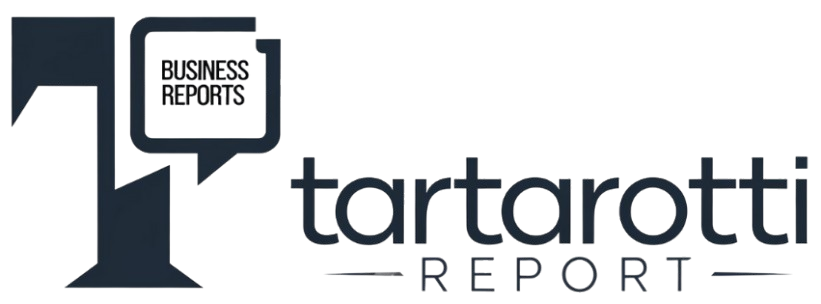Introduction:
The global investment fund market continues to expand, with an estimated value of $54.9 trillion in 2021 and projected growth to $74.3 trillion by 2028. This scenario offers significant opportunities for financial entrepreneurs and asset managers who want to launch their own funds.
Setting up an investment fund is a complex process involving regulatory, operational and strategic considerations. Success in this endeavor requires not only expertise in investment management, but also a thorough understanding of the legal and regulatory environment, as well as business structuring and marketing skills.
In this comprehensive guide, we will explore the essential steps and advanced strategies for creating and launching an investment fund. From initial conception to operationalization and global expansion, we’ll provide practical insights for entrepreneurs and financial professionals aspiring to enter this dynamic and challenging market.
Part 1: Ready to Roll 🚀 – Basic Strategies and Practical Actions
Part 1, “Ready to Roll”, offers practical actions and immediate advice for entrepreneurs who need quick and effective guidance.

1. Conception and Initial Planning
Defining the Investment Strategy
- Identifying the market niche and type of fund (hedge fund, private equity, venture capital, etc.)
- Development of the investment philosophy and process
Market Research and Competitive Analysis
- Assessment of market size and fundraising potential
- Competitor analysis and value proposition differentiation
Basic structuring of the fund
- Choice of legal structure (limited partnership, LLC, corporation)
- Initial definition of terms and conditions (fees, lock-up periods, etc.)
2. Basic legal and regulatory requirements
Registration and Licensing
- Registration with the SEC (Securities and Exchange Commission) or equivalent regulatory body
- Obtaining the necessary licenses for investment management
Initial Compliance
- Development of compliance and risk management policies
- Implementation of basic internal controls
Essential legal documentation
- Preparation of the Private Placement Memorandum (PPM)
- Preparation of subscription contracts and limited partnership agreements
3. Operational Structuring
Essential Team
- Hiring portfolio managers and analysts
- Establishment of back-office and compliance functions
Basic technological infrastructure
- Implementation of portfolio management and accounting systems
- Establishment of data security protocols
Key external partners
- Selection of fund administrator
- Choice of custodian and brokers
4. Initial fundraising strategies
Development of Marketing Materials
- Creation of fund presentations and fact sheets
- Website development and basic digital presence
Networking and Investor Relations
- Participation in industry conferences and events
- Networking with institutional investors and family offices
Roadshow planning
- Preparation of pitch and presentation materials
Scheduling meetings with potential investors
Part 2: Deep Dive 🤿 – Technical Deepening in Advanced Strategies
Part 2, “Deep Dive”, provides in-depth analysis for those who wish to delve into the technical and complex aspects of international finance.

5. Sophisticated legal and tax structuring
Advanced Jurisdictions and Structures
- Comparative analysis of onshore vs. offshore jurisdictions (Cayman, Delaware, Luxembourg)
- Implementation of master-feeder structures to suit different investor profiles
International tax planning
- Structure optimization for global tax efficiency
- Consideration of tax treaties and regulations such as FATCA and CRS
Complex governance structures
- Implementation of investment committees and advisory boards
- Development of conflict of interest management policies
6. Advanced Investment Strategies and Risk Management
Development of Quantitative Models
- Implementation of trading algorithms and predictive analysis
- Use of big data and machine learning for decision making
Sophisticated Risk Management
- Implementation of VaR (Value at Risk) models and stress testing
- Development of complex hedging strategies
Alternative Investment Strategies
- Exploring alternative assets (cryptocurrencies, NFTs, carbon credits)
- Development of impact investing and ESG strategies
7. Technology and Innovation in Fund Management
Advanced Investment Platforms
- Development of customized investment interfaces for clients
- Implementation of blockchain solutions for transparency and operational efficiency
Automation and AI in Portfolio Management
- Use of robo-advisors for portfolio optimization
- Implementation of automatic alert and rebalancing systems
Cybersecurity and Data Protection
- Implementation of advanced cyber security protocols
- Development of business continuity and disaster recovery plans
8. Global Marketing and Distribution
Sophisticated branding strategies
- Development of a global and differentiated brand
- Implementation of content marketing and thought leadership strategies
Innovative distribution channels
- Exploration of wealth tech platforms and fund marketplaces
- Development of strategic partnerships with fintech platforms
Expansion into international markets
- Navigating regulatory requirements in multiple jurisdictions
- Adapting marketing strategies for different cultures and markets
9. Compliance and Advanced Regulation
Navigating Complex Global Regulations
- Compliance with MiFID II, AIFMD, Dodd-Frank in multi-jurisdictional operations
- Implementation of transaction monitoring and regulatory reporting systems
Reputational risk management and ESG
- Development of robust ESG policies and sustainability reports
- Implementation of advanced due diligence systems for investments
Preparing for Regulatory Audits and Inspections
- Conducting mock audits and regulatory stress tests
- Developing protocols for responding to regulatory investigations
10. Growth and Scale Strategies
Strategic Mergers and Acquisitions
- Evaluating M&A opportunities to expand AUM and capabilities
- Post-merger integration strategies and organizational culture management
Innovation in Investment Products
- Development of customized and thematic investment products
- Exploration of tokenized fund structures and DeFi (Decentralized Finance)
Talent Management and Organizational Culture
Creating a culture of innovation and excellence in investments
Implementation of talent development and succession programs
Conclusion
Setting up an investment fund is a complex undertaking that requires a combination of financial expertise, regulatory knowledge and entrepreneurial skills. Success in this highly competitive sector depends not only on investment performance, but also on the ability to navigate a constantly evolving regulatory environment, innovate in products and strategies, and build lasting relationships with investors.
Key points to remember:
- Legal and regulatory structuring is fundamental; invest time and resources in compliance from the outset.
- Differentiation is crucial; develop a unique investment strategy and a clear value proposition.
- Technology is a competitive differentiator; embrace innovation in all areas of the business.
- Human capital is essential; build a strong team and a solid organizational culture.
- Adaptability is key; be prepared to evolve with market and regulatory changes.
By applying the strategies and insights in this guide, entrepreneurs and financial professionals will be better equipped to launch and scale successful investment funds. Remember, success in this sector is a marathon, not a short-distance race. It requires long-term vision, continuous adaptability and an unwavering commitment to business excellence and integrity. build a resilient and profitable portfolio that transcends borders and economic cycles.
FAQs
- Q: What is the minimum capital required to launch an investment fund? A: The minimum capital varies significantly depending on the type of fund and jurisdiction. In general:
Hedge Funds: You can start with $5-10 million, but $50-100 million is more common to attract institutional investors.
Private Equity: Generally $100 million or more for start-up funds.
Mutual Funds: Varies, but often $1-5 million for smaller funds.
In addition to investment capital, set aside significant funds for initial operating and regulatory costs.
- Q: What are the main regulatory challenges when launching a global fund? A: Key regulatory challenges include:
- Compliance with multiple regulatory regimes (SEC, FCA, ESMA, etc.)
- Navigating registration and licensing requirements in different jurisdictions
- Compliance with AML (Anti-Money Laundering) and KYC (Know Your Customer) regulations
- Adapting to frequent regulatory changes, such as MiFID II in Europe
- Managing reporting and disclosure requirements in different countries
- Q: How do I choose between an onshore vs. offshore structure for a fund? A: Consider the following factors:
- Profile of target investors and their tax preferences
- Types of assets and investment strategies
- Operational and compliance costs in different jurisdictions
- Reputation and market perception
- Regulatory flexibility and tax efficiency
Offshore structures (e.g. Cayman) offer more flexibility, but onshore structures (e.g. Delaware, Luxembourg) may be preferable for certain institutional investors.
- Q: What are the emerging trends in fund management technology? A: Important trends include:
- Use of AI and machine learning for investment analysis and risk management
- Implementation of blockchain to improve transparency and operational efficiency
- Adoption of digital investment platforms and mobile apps for investor engagement
- Use of big data for market insights and decision-making
- Increased use of cloud computing for scalability and reduced infrastructure costs
- Q: How can funds adapt to the growing demands for ESG investments? A: Strategies to adapt to ESG include:
- Developing robust ESG policies and integrating them into investment processes
- Implementing ESG scoring and analysis systems
- Creating thematic investment products focused on sustainability
- Improved reporting and transparency on ESG metrics
- Active engagement with investee companies on ESG issues
- Obtaining ESG certifications and ratings recognized by the market
Remember, success in investment fund management requires a combination of financial expertise, adaptability to market and regulatory changes, and a strong orientation towards investors’ needs and preferences. Keep abreast of the latest trends and be prepared to continually innovate in your strategies and operations.

Member of the IMA (Institute of Management Accountants) – USA
Member of the AICPA (American Institute of CPAs) – USA
Member of AAII (American Association of Individual Investors) – USA
Member of AAA (American Accounting Association) – USA
Member of the FMA (Financial Management Association) – USA
These associations not only attest to Kleyton’s commitment to professional excellence, but also ensure that his knowledge is always at the forefront of international financial and accounting practices.
With a robust academic background, including a Bachelor’s degree in Accounting and MBAs in International Finance and Accounting, as well as in International Business, Kleyton offers a unique and comprehensive perspective on the global business landscape.
Through the Tartarotti Report, Kleyton invites visionary entrepreneurs and executives to connect, explore opportunities for collaboration and, together, successfully navigate the complex world of international corporate finance.







